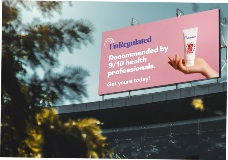Nurse professional indemnity and public liability insurance
Your line of work is unique, so we’ve tailored an insurance policy that best suits the needs of your profession to better protect your reputation and livelihood.
Principal partner of



If you're forced to defend your professional reputation, you'll want the best support behind you.
Our policies include three types of insurance in one designed specifically for nurses combining: professional indemnity insurance, public liability insurance, and product liability insurance.
Product liability
Insurance cover for liability for injury or property damage caused by goods sold or supplied by you. This can include cover for clients getting sick or injured from products you provide for example; protein shakers, resistance bands, or other products.
Extra benefits of this insurance policy
Nil basic excess on liability claims
Run-off cover which protects you when you’ve ceased practising permanently
Cover for legal costs and expenses associated with complaints to your registration body, disciplinary proceedings or a coronial inquiry
Provides a 21-day cooling-off period, allowing you to change your mind after purchasing coverage
Ongoing education through our RiskHQ, providing you with relevant and informative information on the risks that matter to you
Round-the-clock support with 24 / 7 claim support line availability
Or to find out more or to get your hands on our policy wording, simply call us on 1800 810 213.
FAQs for Nurses
Protecting professional practice:
Nurses face various risks in their professional practice, including the potential for claims of negligence or malpractice. Professional indemnity insurance (PII) provides financial protection against such claims, covering legal costs and any compensation awarded. This ensures that nurses can continue their practice without the fear of financial ruin due to unexpected legal issues.
For nurses who work for a medical facility, staff may be covered under the organisation's insurance policy. You should always check with your employer to be sure. For nurses who work as independent contractors, a private insurance policy will be needed.
Meeting legal requirements with Ahpra:
The Australian Health Practitioner Regulation Agency (Ahpra) mandates that nurses have appropriate PII arrangements as part of their registration standards. This requirement is in place to protect both the nurse and the public, ensuring that any professional indemnity, public liability and product liability is adequately covered. Compliance with Aphra’s standards is essential for maintaining registration and the ability to practice legally.
Professional Indemnity Insurance (PII):
Professional indemnity insurance protects nurses from legal claims arising from their professional duties. It covers claims of negligence, malpractice, errors, or omissions that result in harm to patients. This includes legal defence costs, and any compensation awarded. Nurses are legally required to have this insurance as part of their registration with Ahpra to protect their practice and patients.
Public Liability Insurance:
Public liability insurance covers nurses in case a third party, such as a patient or visitor, is injured or their property is damaged as a result of the nurse's activities or negligence. This could include situations like a patient slipping and falling in a healthcare facility or home environment. Public liability insurance provides coverage for legal costs and compensation related to such incidents.
Product Liability Insurance:
Product liability insurance applies to claims arising from the use of defective or harmful products, such as medical equipment or supplies used by nurses. For example, if a nurse uses a faulty thermometer or contaminated wound dressings that cause harm to a patient, product liability insurance protects the nurse from being held personally responsible. In most cases, this insurance is held by the product manufacturer, but it's relevant if the nurse is seen as responsible for using the product.
At Guild Insurance we offer combined insurance with professional indemnity insurance, public liability insurance and product liability insurance together in one policy.
Assessing coverage needs:
Choosing the right insurance involves evaluating the specific risks and requirements of your professional practice. Consider the following steps:
- Evaluate professional risks: Identify the potential risks associated with your practice, including the likelihood of legal claims arising from negligence or errors.
- Understand legal and regulatory requirements: Ensure that your insurance meets the standards set by Ahpra and other relevant regulatory bodies. This includes verifying that the policy covers all necessary aspects of your professional duties.
- Compare insurance providers: Look for insurers that specialize in professional indemnity insurance for healthcare professionals. Compare policies to find one that offers comprehensive coverage at a reasonable cost.
- Consult with a specialist: If you are unsure of the cover you require, please contact us at 1800 810 213 to speak to an insurance specialist.
By thoroughly assessing your coverage needs and understanding the requirements of your profession, you can choose an insurance policy that provides adequate protection and peace of mind.
Professional indemnity insurance covers you for your civil liability when a claim arises from a breach of your professional duty. Guild combines Professional Indemnity, Public Liability and Product Liability in one policy.
Business insurance is designed to protect business risk, for example, if you ran your own practice and required cover for contents, liability or business interruption cover.
You may have an Australian Business Number (ABN) for your contract work as a nurse. However, be sure to understand whether you need insurance as a professional to cover your professional duties as a nurse or as a business entity.
It is essential for self-employed nurses to have their own professional indemnity insurance arrangements. These can be obtained through professional bodies, trade unions, or defence organisations, which may offer professional indemnity insurance cover as part of their membership or for an additional fee. Alternatively, self-employed nurses can arrange their own coverage directly through an insurer or an insurance broker.
Good Samaritan cover for nurses provides protection for actions they take in emergency situations where they provide assistance voluntarily, outside of their regular professional duties. This type of cover ensures that nurses are insured against claims of negligence while offering help in emergencies, even when they are not officially on duty.
Yes, malpractice for nurses is covered by professional indemnity insurance. This insurance protects nurses against legal claims resulting from alleged errors, omissions, or negligent acts in the course of their professional duties. It covers the costs of legal defence, and any damages awarded, ensuring that nurses are protected from financial loss due to malpractice claims.
As a nurse, you must meet the NMBA’s registration standards, which include having appropriate professional indemnity insurance arrangements when practising your profession. Ensure that your professional indemnity insurance arrangements provide adequate and suitable coverage for all aspects of your practice. The NMBA’s registration standard requires enrolled nurses, registered nurses, and nurse practitioners with their own insurance to retain proof and present it to the NMBA if requested. Professional indemnity insurance arrangements can be obtained through:
- Your private or public sector employer
- Membership in a professional body, trade union, or defence organisation
- Directly from an insurer or via an insurance broker
- A combination of the above
If you are employed and only work for an employer, your employer likely has professional indemnity insurance arrangements that cover your practice and associated risks. However, coverage varies between employers, so always verify the specifics of your employer’s professional indemnity insurance arrangements.
If you have a combination of employed and self-employed roles, ensure you have professional indemnity insurance arrangements for your self-employed work, as employer-provided professional indemnity insurance will not cover this. Also, if you practice as a volunteer or in unpaid positions, you still need appropriate professional indemnity insurance arrangements. Some volunteer organisations have professional indemnity insurance arrangements that cover volunteer activities. Check if your personal professional indemnity insurance arrangements cover voluntary work.
If you are registered but not practising for part of the registration period (e.g., during a six-month leave), you do not need professional indemnity insurance arrangements for that period. However, when you cease practice, you must obtain run-off cover for matters that may arise from your previous practice.
Your professional indemnity insurance arrangements must provide an appropriate amount of cover, which should be adequate for the nature, context, and risks of your practice. This ensures you meet any liability to pay compensation if a claim is successful against you. The appropriate amount of cover depends on factors like your practice area, the service users you work with, associated risks, your history of insurance claims, and your professional experience.
Run-off cover is needed when practitioners stop practising and protects against claims arising from activities undertaken during practice. If your professional indemnity insurance policy is a ‘claims made’ policy, it only covers claims made during the coverage period, and run-off cover is needed for claims made after you stop practising. If your professional indemnity insurance policy covers incidents occurring during the coverage period, known as ‘occurrence-based’ cover, you won’t need run-off cover.
‘Automatic reinstatement’ in insurance policies restores the insured amount for new, unrelated claims after the chosen policy limit is reached. The NMBA’s registration standard requires automatic reinstatement in professional indemnity insurance arrangements to prevent exhaustion of coverage after a large claim.
You must disclose any information to your professional indemnity insurance provider that could affect their decision to provide or continue providing your professional indemnity insurance arrangements. This duty exists whether the insurance is under a contract or any other professional indemnity insurance arrangement.
As a nurse, you are responsible for meeting the NMBA’s standards and ensuring your professional indemnity insurance arrangements are appropriate for your practice. When applying for or renewing registration, you must declare that you will not practice without professional indemnity insurance arrangements in place. The NMBA may request evidence of your professional indemnity insurance arrangements during audits or if there are concerns about your coverage.
If your practice changes, such as focusing on a specific area or starting new roles, ensure your professional indemnity insurance arrangements provide appropriate coverage, contact us on 1800 810 213.
Our partnership with Australian College of Nursing and the Australian College of Perioperative Nurses
Guild is the principal partner of Australian College of Nursing and the Australian College of Perioperative Nurses (ACORN).
We work closely with your association to tailor an insurance policy suited to your unique needs.
The Australian College of Nursing is the national peak body for nursing, committed to advancing the profession and supporting the health and wellbeing of all Australians.
ACORN is the peak body of perioperative nursing, the largest specialist nursing college and the only perioperative content provider.
Hear what other nurses are saying
01/02/2025
01/12/2024
01/03/2025
Not just an insurance policy
Risk articles with RiskHQ

You can visit RiskHQ at any time to read up about the unique risks you face as an nurse. We cover a variety of risk management topics, from managing complaints, to social media risks, and much more.
Stay on the right side of Ahpra’s advertising requirements
While there are laws for advertising any business in Australia, the Australian Health Practitioner Regulation Agency (Ahpra) has specific requirements for anyone advertising a regulated health service. These requirements apply equally to all types of health professionals regulated by Ahpra.
Record keeping requirements.
Clinical record keeping is unfortunately one of those dreaded risk management topics. Guild Insurance understands that it isn’t the most interesting topic for health practitioners to spend time thinking and talking about.
*Coverage up to $20 million requires your selection of cover up to this limit during the quote and purchase process.







